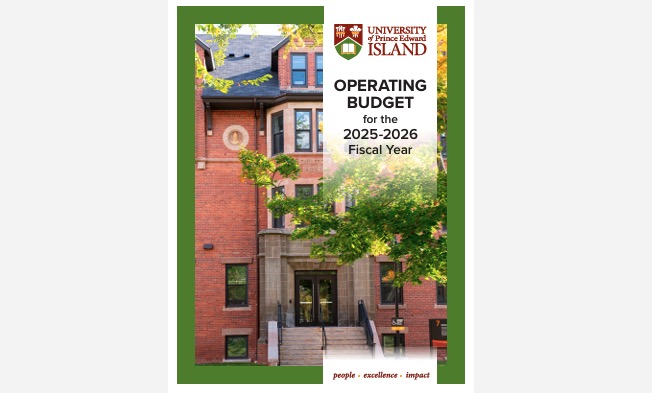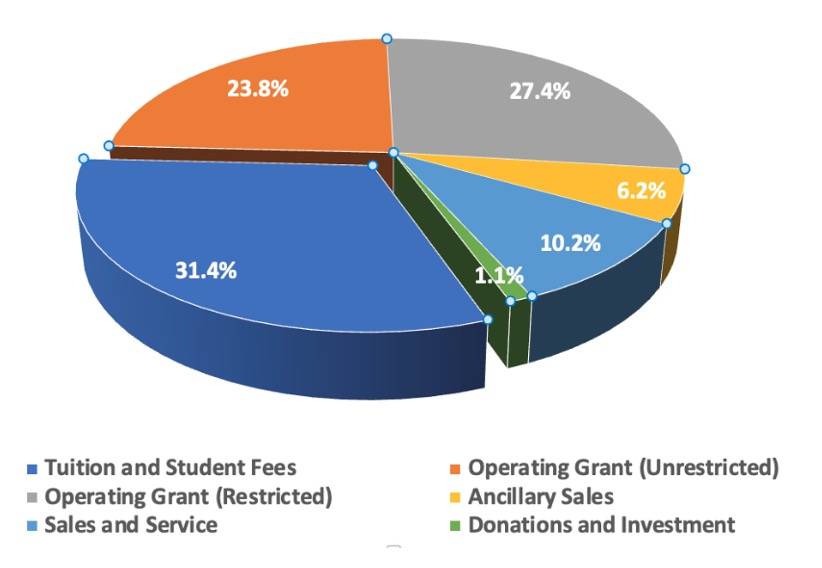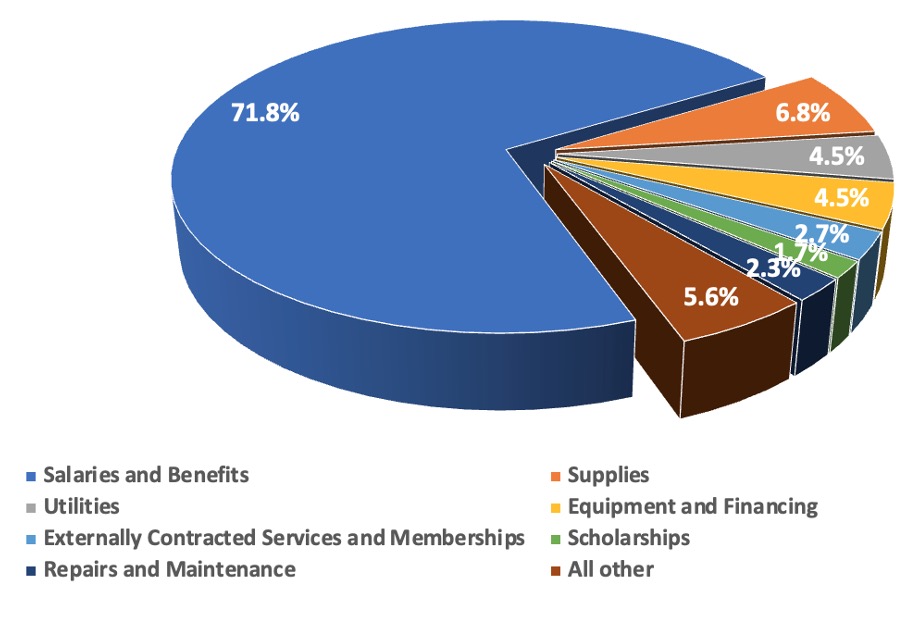UPEI Budget Overview: Planning for Stability and Sustainability

The following information is a summary of the key points from the UPEI Budget Information Session that was held on June 25. It was also emailed to UPEI students, faculty, and staff.
Every university in Canada faces the same challenge: how to deliver high-quality education with fewer resources. The federal cap on international student permits has significantly reduced enrolments, and government funding has not filled the gap.
UPEI remains in a stronger economic position than many of its peers. Following a thorough review of revenues and expenses, as well as consultations with deans, directors, and others, the University successfully closed the gap between expenses and revenue, approving a balanced 2025–2026 budget. This was achieved through a modest tuition increase, a 3.5-per cent increase to the provincial grant, and targeted internal cost controls.
Looking ahead, we are conservatively projecting a $5.4-million shortfall in 2026–2027, driven by lower enrolment, the conclusion of some time-limited funding, natural increases in salaries and benefits, and other non-salary costs. We must prepare now to ensure long-term financial stability while continuing to protect the quality of education and student support services we provide.
How will we get there? We’ll look at both short- and long-term ways to stay financially stable and support academic quality. Our actions will include:
- Streamlining operations and reducing inefficiencies
- Seeking opportunities to grow revenues from non-traditional sources
- Prioritizing student recruitment and retention
- Supporting the UPEI Action Plan by investing in relationships, campus culture, and positive labour relations
- Using Strategic Vacancy Management to make informed, transparent decisions about vacant positions
What is Strategic Vacancy Management? Strategic Vacancy Management is the University's process for making principled, data-driven decisions about job vacancies. When a position becomes vacant—through retirement, resignation, or other reasons—it’s a normal and healthy opportunity to reassess whether the role still meets the evolving needs of the university. We might ask:
- Is this role aligned with our mission, strategic plan, and priorities?
- What is its impact on the academic viability of programs?
- How does the position impact student experience and outcomes?
- Does it support the health, safety, and security of our campus community?
- Have we considered balance across all functions of the University?
This approach ensures that every vacancy is reviewed thoughtfully and transparently, with a focus on academic integrity, student experience, and long-term sustainability.
Our Commitment to Openness and Transparency
UPEI is building a stronger culture of transparency, accountability, and trust—now and into the future. As we move forward, we remain committed to open consultation, clear communication, and regular updates on our progress. This includes sharing how budget decisions are made, how they align with our values, and how we’re working to strengthen our campus culture. Some summary representations are provided below; for more information, view the UPEI Operating Budget for the 2025–2026 Fiscal Year.
Operating Revenues: Core, the Atlantic Veterinary College, and the Faculty of Medicine

Operating Expenses: Core, the Atlantic Veterinary College, and the Faculty of Medicine
